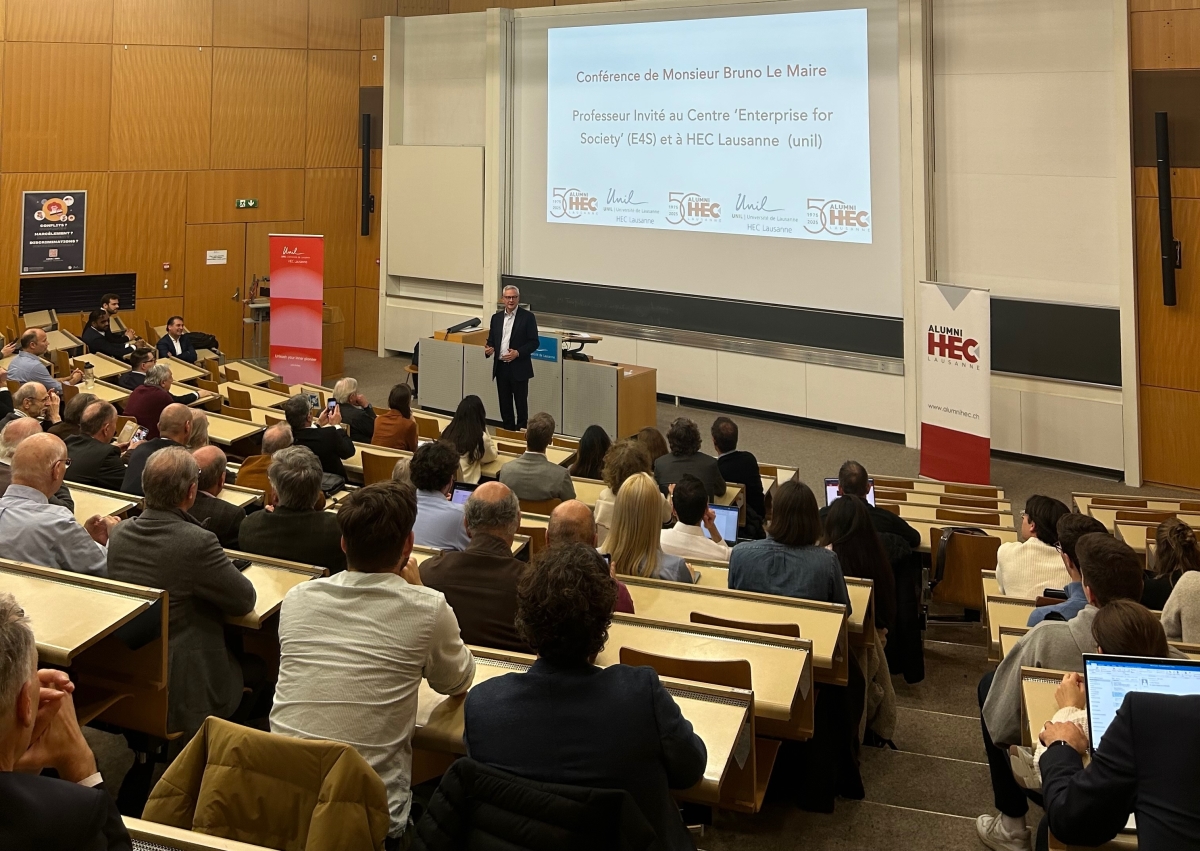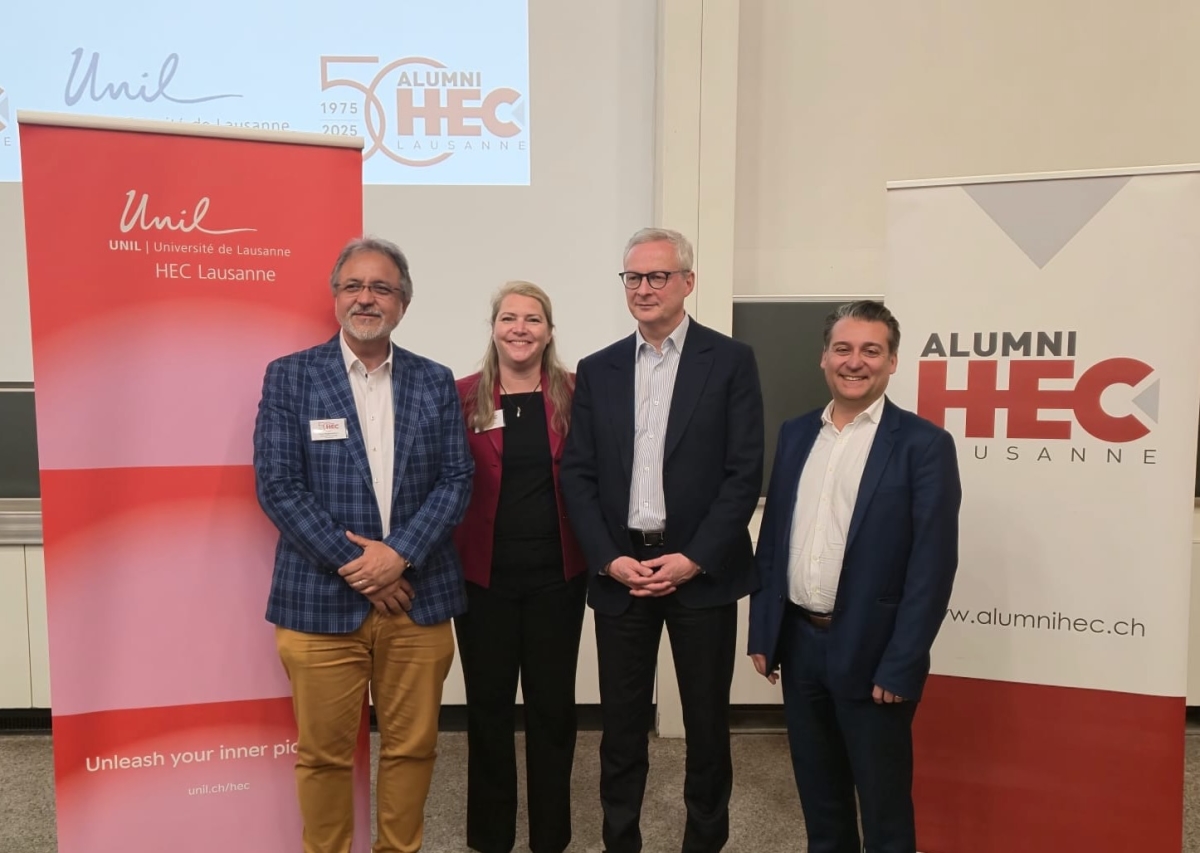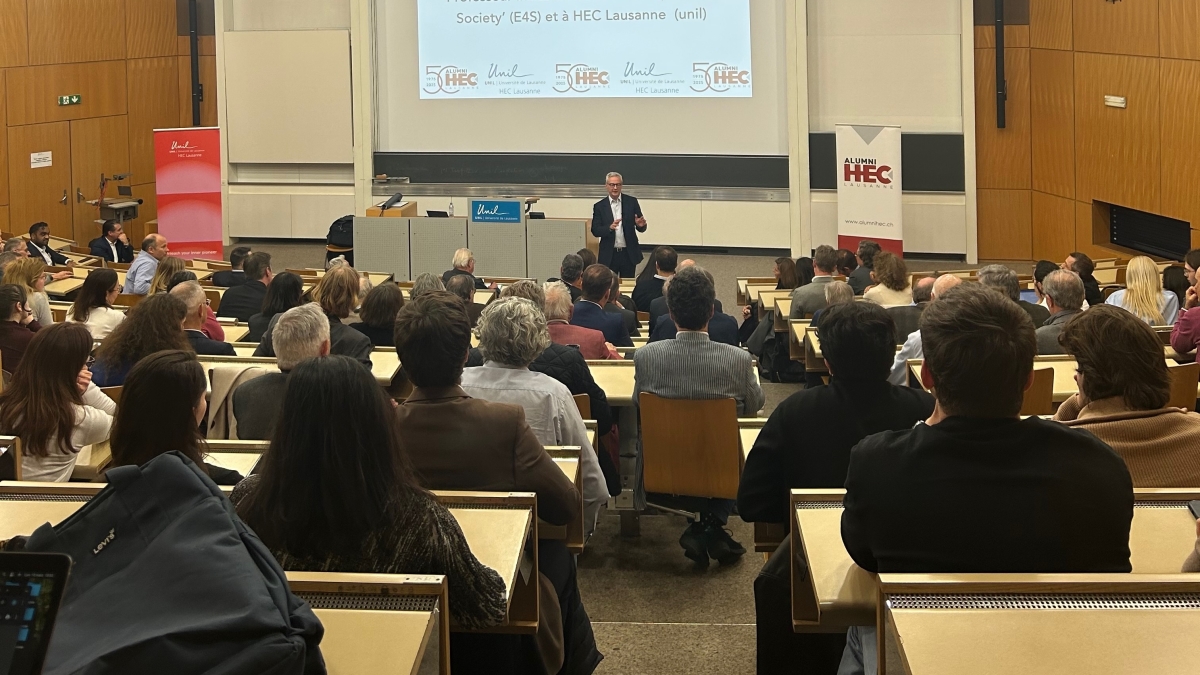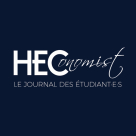09.06.2025
Life of the Association
Conference of Mr. Bruno Le Maire
This year, the Alumni HEC Lausanne Association's General Assembly concluded with a conference titled "Geopolitics in a Deeply Changing World: What Are the Implications?", delivered by Bruno Le Maire, a central figure in French and European economic policy.
INTRODUCTION: WHO IS BRUNO LE MAIRE?
A former student of the École Normale Supérieure and the École Nationale d’Administration (ENA), Mister Bruno Le Maire has held several ministerial positions before becoming Minister of the Economy and Finance in 2017 under President Emmanuel Macron. More recently, he was appointed Visiting Professor at the "Enterprise for Society" Center. As Minister, his actions have been driven by a desire to strengthen the economic sovereignty of France and Europe in response to geopolitical and technological changes. During this conference, he provided an in-depth analysis of the contemporary challenges facing Europe and the tools it has to assert its power, particularly in relation to the United States and its leader, Donald Trump.
A RIFT BETWEEN EUROPE AND THE UNITED STATES
In his address, Bruno Le Maire highlighted the existence of a “Western schism,” not concerning economic and financial interests, but values. He emphasized the divergence between the United States and Europe on fundamental principles that had been established since 1945, such as state sovereignty and the inviolability of borders. He referred specifically to the Trump administration’s change in agenda, which prioritized American supremacy under the banner of “Make America Great Again.” His stances regarding Greenland and Canada are examples of this. Le Maire also mentioned the Ukraine conflict to illustrate his point, noting that Trump seemed more interested in Ukraine's natural resources than the outcome of the war.
Bruno Le Maire also outlined the American strategy to ensure its financial dominance, particularly through financing its debt while keeping prices low—an equation he views as increasingly untenable. He addressed how the U.S. uses pressure tactics to force other countries to fund its debt, such as imposing tariffs. For example, he cited American tariffs on French wine as a trade-off for Europe halting the deployment of Huawei’s 5G infrastructure.

DIGITAL TRANSFORMATION AND ITS EFFECTS ON DEMOCRACY
Another key topic in his presentation was the cognitive shift brought on by new technologies. According to him, the foundation of democratic debate relies on the distinction between truth and falsehood. This principle, however, is now undermined by the narrative power of extremist movements, which seek not truth but sensationalism and politically charged information. He likened the influence of smartphones and social media to a form of modern dogma, suggesting these platforms act as a “second life,” while noting that these technologies are largely under American control.
Bruno Le Maire argued that Europe and democracy lost a battle in this domain in 1989, with the fall of the Berlin Wall, when the apparent victory of liberal democracy led to the illusion of its omnipotence. He criticized the idea that Europe believed trade would pacify international relations, when in recent years, trade has been militarized and is now governed by power dynamics. In essence, he argued, we are witnessing the end of the neo-liberal democratic era.
CAN EUROPE ASSERT ITS POWER?
Despite this assessment, Bruno Le Maire emphasized Europe’s strengths in reinforcing its power and countering America’s supremacy agenda. Among them is Europe’s economic and financial strength. To capitalize on this, he suggested that countries must create a unified market to facilitate investment within Europe. Currently, a large company seeking to raise funds in Europe must approach investors from multiple countries, each with different regulations, complicating the process. In contrast, the single market in the United States significantly simplifies access to funding. If Europe were to create a similar single market, European companies would have fewer reasons to look across the Atlantic. The main obstacle today is some countries' refusal to submit to European oversight—but in the face of Trump’s rapid actions, Europe must act swiftly and respond decisively.
SIGNS OF EUROPEAN OPTIMISM
Despite the challenges, Bruno Le Maire pointed to several positive developments and expressed optimism about Europe's future. The fact that certain countries are focusing on and investing in their defense shows a readiness to protect themselves. A notable example of cooperation is the German Chancellor's request for France to extend its nuclear shield to German territory. Another is Germany’s willingness to lift its debt cap to raise funds for military rearmament.
CONCLUSION: A POLITICAL RESPONSIBILITY FOR THE FUTURE
For Bruno Le Maire, European leaders have a responsibility to defend democracy and reinvent it to prove its effectiveness in the face of rising authoritarian regimes. He calls for democracy to be placed at the heart of Europe’s political system and for better organization of the continent’s economic power to effectively compete with the United States. According to him, European states have all the tools they need to face global transformations—but they must also find the will to fully wield their influence and reach consensus for the common good.
Valentin Mermoud
REPLAY OF THE CONFERENCE





